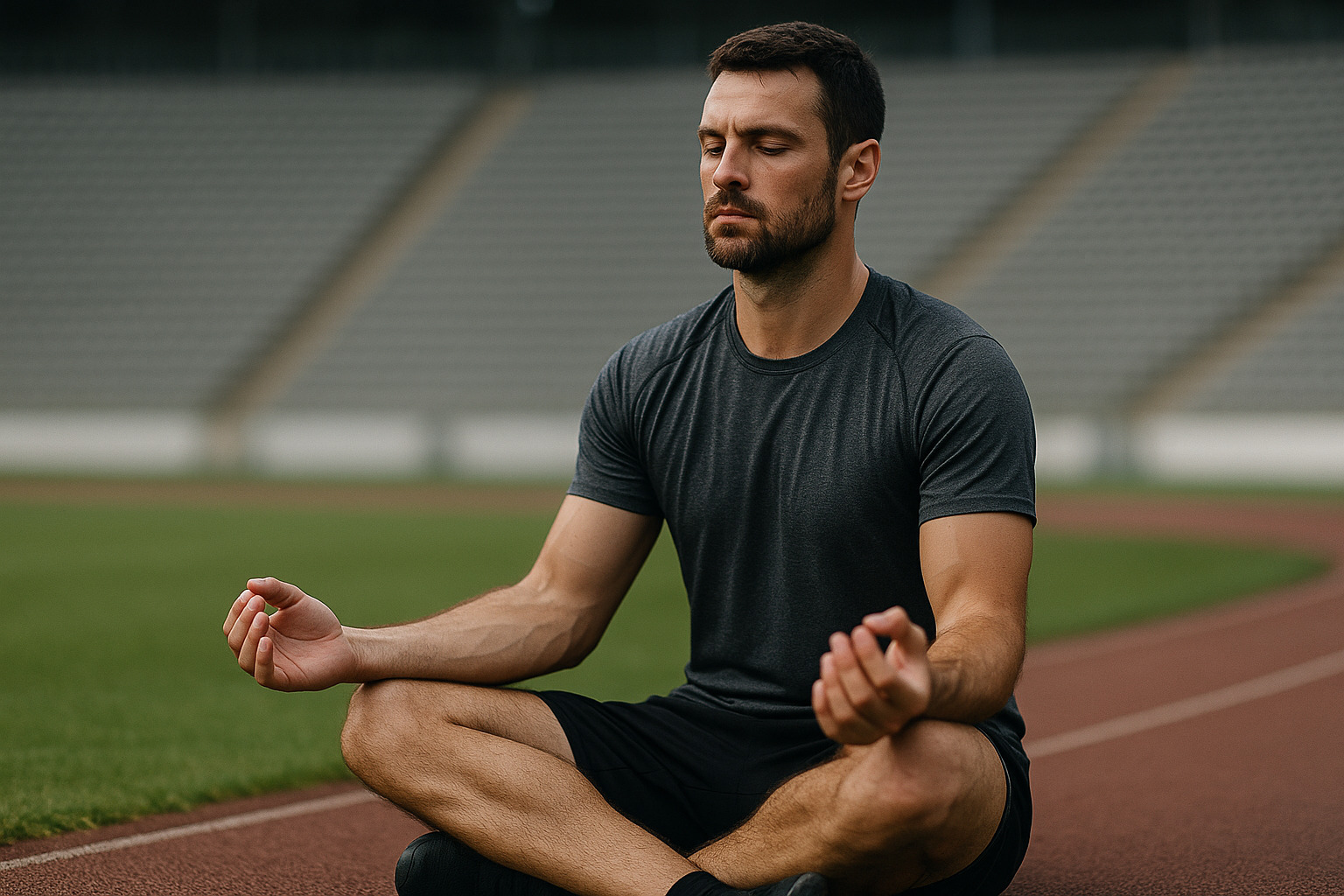Mindfulness has moved from meditation halls into training grounds and stadiums. Athletes at all levels are turning to it as a mental skill for sharpening concentration, reducing distractions, and improving performance under pressure. By focusing awareness on the present moment without judgment, mindfulness equips athletes to train and compete with greater clarity and control.
Understanding Mindfulness in Sports
In sports, mindfulness is the practice of directing attention to the task at hand while maintaining awareness of body sensations, breathing, and mental states. This prevents the mind from wandering to past mistakes or future outcomes. Athletes who practice mindfulness can notice unhelpful thoughts without reacting impulsively, keeping their focus anchored on performance.
Core Principles Applied to Athletics
- Present-Moment Awareness – Observing the game or training session as it unfolds instead of replaying errors or anticipating the next play.
- Non-judgmental Observation – Recognizing performance fluctuations without labeling them as good or bad.
- Breath Control – Using breathing as a stabilizing anchor during high-intensity moments.
- Body Scan Awareness – Monitoring muscle tension, posture, and energy levels to adjust in real time.
Benefits for Athletic Focus
Mindfulness offers tangible advantages for athletes seeking consistent mental sharpness:
- Faster Recovery from Mistakes – Accepting errors and returning to the game without dwelling on them.
- Improved Decision-Making – Acting with clarity instead of reacting from frustration or anxiety.
- Sustained Concentration – Maintaining attention across long training sessions or extended competitions.
- Reduced Mental Fatigue – Lowering the cognitive load by filtering distractions.
- Better Stress Management – Staying composed during high-stakes moments.
How Mindfulness Works on the Brain
Mindfulness training impacts brain areas responsible for attention and emotional regulation:
- Prefrontal Cortex Activation – Supports sustained attention and goal-directed behavior.
- Amygdala Modulation – Reduces overactivation during stress, lowering emotional reactivity.
- Anterior Cingulate Cortex Engagement – Improves error detection and adaptive adjustments.
These changes translate into practical performance benefits such as quicker reaction times, more accurate decision-making, and improved adaptability.
Practical Mindfulness Strategies for Athletes
1. Breath-Based Centering
Before a game or during breaks, athletes can take slow, deliberate breaths, focusing entirely on inhalation and exhalation. This resets mental clarity and lowers tension.
2. Pre-Performance Routines
Mindful routines before training or competition, such as stretching while paying attention to sensations, help set a focused mindset.
3. Body Scanning
Regularly checking for areas of tightness or discomfort allows for adjustments in posture and movement, preventing inefficient energy use.
4. Visual Focus Points
Selecting a physical spot or object to anchor vision during high-pressure moments helps block external distractions.
5. Mindful Listening
During coaching instructions, practicing full attention without rehearsing responses ensures better tactical understanding.
Integrating Mindfulness into Training
Mindfulness becomes most effective when embedded into the athlete’s regular training schedule rather than treated as an occasional exercise.
- Warm-Up Integration – Starting sessions with a short mindfulness practice primes attention.
- Cool-Down Reflection – Reviewing performance with a non-judgmental lens helps identify adjustments without self-criticism.
- Mindful Drills – Performing technical drills while focusing only on form, movement, and breath reinforces skill retention.
- Video Review Awareness – Watching replays mindfully to study movement and decision-making without attaching emotion.
Common Challenges and Solutions
- Restless Thinking – Solution: Shorter mindfulness intervals that gradually increase over time.
- Performance Anxiety – Solution: Combine mindfulness with controlled breathing to calm the nervous system before competition.
- Inconsistent Practice – Solution: Link mindfulness exercises to existing routines such as warm-ups or hydration breaks.
Mindfulness for Team Dynamics
Mindfulness also strengthens communication and cohesion in team sports. By being fully present during discussions, athletes respond with greater understanding and empathy. Reduced emotional reactivity can lower conflicts and help teams recover quickly from setbacks.
Team Benefits
- More effective listening during strategy sessions.
- Greater adaptability when plays break down.
- Increased trust through steady emotional presence.
Long-Term Athletic Gains
Athletes who maintain mindfulness practices over months and years report improvements in consistency, mental resilience, and overall well-being. These benefits extend beyond competition into training, recovery, and personal life, creating a sustainable mental framework for performance.
